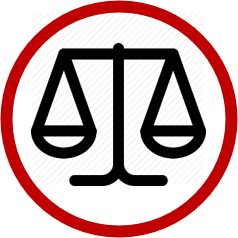Sexual Misconduct vs. Title IX Grievance: Comparing Policy & Process
The purpose of this information is to provide a broad overview of the impact the Title IX Regulations issued by the US Department of Education and effective August 14, 2020 have on Stony Brook University's process when the Title IX Grievance Policy and Procedure applies. The regulations are published in the federal register and are available for your review.
On April 6, 2021, President Biden ordered a 100 day review of all Title IX guidance and regulations. new proposed regulations on June 23, 2022. It is anticpated that OCR will issue a new final rule between May and September 2023. If you have any questions, please contact our office at oea@stonybrook.edu.
 Step 1. Review Inquiry, Report or Complaint
Step 1. Review Inquiry, Report or Complaint
Sexual Misconduct Process |
Title IX Regulations |
|
|---|---|---|
Reporting |
Sexual Misconduct ProcessAnonymous ReportingResponsible Employee Reporting Third Party Reporting Deputy Title IX Coordinators Constructive vs. Actual Notice |
Title IX RegulationsFormal signed complaint required unless TIXC determines investigation is necessary. |
Physical Jurisdiction |
Sexual Misconduct ProcessAll programs or university related events - Conduct that may impact academic interests of or the safety and security of other members of the University Community. |
Title IX RegulationsOn-campus premises, premises that SBU has “substantial control over”, or activity occurring withing the SBU hardware, software and internet network. |
Covered Conduct |
Sexual Misconduct ProcessEEOC definition of sexual harassment – severe OR pervasive and the subjective standard.Detailed definitions of sexual violence. |
Title IX RegulationsNew narrower definition of sexual assault – severe AND pervasive and the objectively offensive. |
Response Required |
Sexual Misconduct ProcessConstructive NoticeInvestigate & Take Action 2012: Once university knows or should know SBU must take steps to understand and respond appropriately to prevent recurrence and remedy its discriminatory effects 2017: Where university knows or should know they must take steps to respond appropriately. |
Title IX RegulationsActual NoticeDeliberate Indifference Standard. 2020: When the university knows of an incident of sexual misconduct they must not respond with deliberate indifference. Must take prompt and equitable steps to resolve the allegations and respond including providing supporting supportive measures designed to preserve access to educational program. |

 Steps 2 & 3: Initial Complainant Interview & Comprehensive Investigation
Steps 2 & 3: Initial Complainant Interview & Comprehensive Investigation
Sexual Misconduct Process |
Title IX Regulations |
|
|---|---|---|
Notice of Allegation |
Sexual Misconduct ProcessOEA contacts complainant and respondent for interviews as soon as practicable. |
Title IX RegulationsNotice must be provided to both parties 3 days prior to meeting. |
Supportive / Interim Measures |
Sexual Misconduct ProcessInterim & Supportive measures available without or without formal complaint. |
Title IX RegulationsSupportive measures with or without formal complaint.Must not be punitive. Emergency Removal available when deemed necessary and must consider impact on educational progress. |
Mediation / Informal Resolution |
Sexual Misconduct ProcessNOT PERMITTED2012: Not permitted in sexual misconduct cases. 2017: Permitted in some cases with TIXC approval. Not permitted in sexual violence cases. |
Title IX RegulationsPERMITTED2020: Permitted when agreed upon by both parties through informed written consent. |
Evidentiary Review / Investigative Report |
Sexual Misconduct ProcessReview of investigative report 5 days prior to hearing with opportunity to submit additional evidence following this review. |
Title IX RegulationsReview of relevant evidence whether or not it will be relied upon prior to conclusion of the investigation. All evidence from the parties must be submitted prior to this review.Parties must sign agreement not to disseminate any information. And have 10 days to review the evidence and respond. |
Advisors |
Sexual Misconduct ProcessAdvisor of choice permitted to assist but not participate during meetings and at hearing. |
Title IX RegulationsAdvisors required at hearing for all parties. Advisors will cross examine opposing party. |

 Steps 4 & 5: Determination & Hearing Process
Steps 4 & 5: Determination & Hearing Process
Sexual Misconduct Process |
Title IX Regulations |
|
|---|---|---|
Live Hearing |
Sexual Misconduct ProcessRequired and recorded. |
Title IX RegulationsRequired and must be recorded.Right to live hearing cannot be waived. |
Evidence At Hearing |
Sexual Misconduct ProcessInvestigative report is submitted as evidence including other testimony and evidence submitted by the parties.Lie detector test information is irrelevant. |
Title IX RegulationsAny statements from parties who do not submit to cross examination must be excluded.Lie detector evidence allowable. |
Witnesses |
Sexual Misconduct ProcessCross examination of witnesses is conducted by the parties.Cross examination of parties is conducted by the hearing officer. Witnesses must have direct knowledge of relevant events. Character statements allowable only for determination of sanction. |
Title IX RegulationsAdvisors engage in relevant cross examination of all witnesses including parties.Character witnesses allowable. Expert witnesses allowable. |
Relevance |
Sexual Misconduct ProcessQuestions regarding prior sexual behavior and predisposition irrelevant and unallowable.Questions regarding mental health are irrelevant and unallowable. |
Title IX RegulationsQuestions regarding prior sexual history and behavior are allowable if asked to prove someone else committed the conduct or to prove consent.Questions regarding undisclosed medical records, including mental health, are allowable if that party has given written consent and it tends to prove a material fact. |
Appeals |
Sexual Misconduct Process3 basis of appeal – procedural error, new evidence, disproportionate sanction. |
Title IX RegulationsAdditional basis required – bias of TIXC or decision maker(s). |
You have the right to make a report to University Police, local law enforcement and/or state police or choose not to report; to report the incident to the University, to be protected by the University from retaliation for reporting an incident; and to receive assistance and resources from the University.
N.Y. Educ. Law 129-B §6444
Stony Brook offices and employees who cannot guarantee confidentiality will maintain your privacy to the greatest extent possible. The information you provide to a non-confidential resource will be relayed only as necessary for the Title IX Coordinator to investigate and/or seek a resolution.
N.Y. Educ. Law § 129-B §6446
At Stony Brook University, we value all students, employees, and job candidates as unique individuals, and we welcome the variety of experiences they bring to our institution. As such, we have a strict non-discrimination policy. It is the policy of Stony Brook University not to discriminate on the basis of race, color, national origin, religion, sex, pregnancy, familial status, sexual orientation, gender identity or expression, age, genetic information, disability, protected veteran status, or any other characteristic protected by law.
